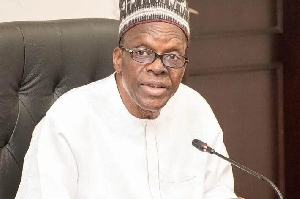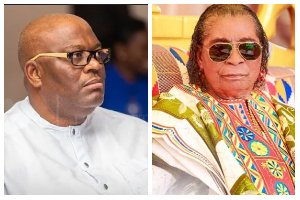
In a recent statement, Speaker of Parliament Alban Bagbin made it clear that candidates whose election results have been overturned by the Supreme Court are not eligible to take the oath of office as Members of Parliament. This decision has significant implications for the political landscape in Ghana, especially regarding the recent electoral disputes.
On December 27, 2024, the Supreme Court ruled that the results from several constituencies, including Okaikwei Central, Ablekuma North, Tema Central, and Techiman South, were invalid. The court found procedural errors in the way the results were handled. This ruling came after a legal challenge by the National Democratic Congress (NDC), which contested a prior High Court decision that ordered the Electoral Commission (EC) to re-collate the results in nine disputed constituencies.
The NDC argued that the re-collation was illegal and undermined the transparency of the electoral process. They claimed that the High Court had overstepped its authority, which raised concerns about the integrity of the election results. Speaker Bagbin’s remarks in Parliament affirmed the Supreme Court’s decision, emphasizing that the proclamation of the so-called MPs-elect was not valid.
Bagbin stated that to be a Member of Parliament, one must be elected by the voters and officially declared by the Electoral Commission. He stressed that without being sworn in by the Speaker, individuals remain simply as MPs-elect. “Some of those re-collated results were completely null and void. They were not recognized by law, and therefore those individuals are not qualified to be sworn in by me,” he explained.
The Speaker also noted that he had previously expressed his concerns regarding the validity of these results before the Supreme Court’s ruling. He referred to himself as the “gatekeeper,” asserting that the proper procedures must be followed to ensure the integrity of Ghana’s parliamentary system. His comments reflect a commitment to upholding the rule of law and ensuring that the electoral process is conducted fairly and transparently.
This situation has sparked discussions about the electoral process in Ghana and the importance of maintaining a credible and trustworthy system. As the nation moves forward, it is crucial for all stakeholders to respect the legal rulings and to work towards a more transparent electoral framework.
In conclusion, Speaker Alban Bagbin’s declaration regarding the ineligibility of certain MPs-elect underscores the significance of lawful procedures in the electoral process. It serves as a reminder that integrity and transparency are essential for democracy to thrive in Ghana. As the political landscape continues to evolve, the emphasis on upholding the rule of law remains paramount for the future of the nation’s governance.






